Astronomy Education Around The World
Plenary Session
2nd Shaw-IAU Workshop on Astronomy for Education
Session timeblocks
Thursday Oct. 8, 2020
UTC: 1:40 p.m. -
3 p.m.
UTC: 8:20 p.m. -
9:40 p.m.
Schedule
-
Bridging the gap between different learning cultures
Thursday Oct. 8, 2020
UTC: 1:50 p.m. - 2 p.m.Having experienced education in multiple countries, I've come to appreciate how each culture has a different approach to education. More importantly, I've come to realised that there is no "one solution fits all" approach that would work on everyone and that education is highly context dependent. A lot of my work over the year involves adapting effective strategies from one culture into another, mostly trying to introduce a more inquiry-based learning more common in the west to the largely lecture-based culture in the east.
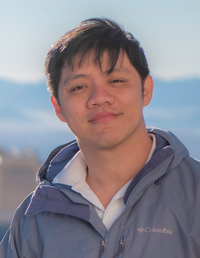
Matipon Tangmatitham (National, Astronomical Research Institute of Thailand)
For more information about this talk click here
-
Creating awareness and promoting Astronomy education in Ethiopia
Thursday Oct. 8, 2020
UTC: 2 p.m. - 2:10 p.m.The Astronomy education in Ethiopia is not much covered in the primary and secondary school curriculum. Therefore, conducting different activities such as trainings, outreach and summer school programs became our best option to promote astronomy through out the country. This days the activities are showing us a fruit. Students are very interested on astronomy education and space science. The demand for the Astronomy education is highly increasing. A lot of students are asking for different reading materials, trainings and schools to get more knowledge about astronomy and space science. Different methods has been used to address different schools and regions likestargazing, space camp, astrobus, summer school programs, etc. Nowadays the activities are not only catching the eyes of the society it is also taking the attention of the government. Sharing our experience how we are promoting and creating awareness on Astronomy education in our country will help and benefit others, especially for those countries who just started working on it.
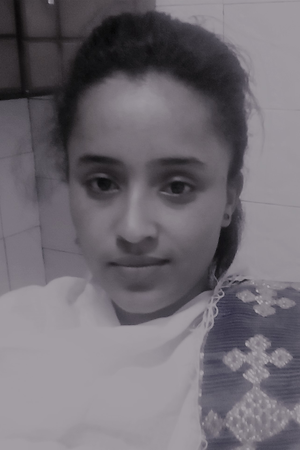
Jerusalem Tamirat Teklu (Ethiopian Space Science and Technology Institute (ESSTI))
For more information about this talk click here
-
AstroBilgi Astronomy Teacher Training Workshops in Turkey
Thursday Oct. 8, 2020
UTC: 2:10 p.m. - 2:20 p.m.AstroBilgi workshop series focus on knowledge transfer and applying these skills towards development problems. The knowledge and experience that teachers will gain in astronomy subjects can be transferred more easily to the students when they are overlaid with an updated astronomical program content. AstroBilgi Committee has started astronomy teacher training workshops in 2006 and accomplished 55 workshops in various cities through out the whole country since then. In every organisation min. 50 teachers were trained. These workshops are performed in coordination with Turkish Astronomical Society (TAD). AstroBilgi Teacher Training Workshops is a multi-stakeholder model maintains sustainability over the years. The local organisers are usually the provincial directorate for national education of the city the workshop, state schools, private schools or science-arts centres which is an official unit established by the Ministry of National Education for informal education. The local municipalities also provide financial support in some occasions.
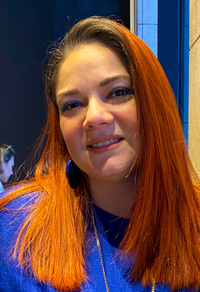
Aysegul Yelkenci (Istanbul Kultur University)
For more information about this talk click here
-
The Importance of Local Digital Dome Content in South Africa
Thursday Oct. 8, 2020
UTC: 2:10 p.m. - 2:20 p.m.Despite the major strides that South Africa has made into innovative astronomical research in recent decades, school students and the general public remain largely unaware of these impressive developments or their significance. Due to the immersive nature and unique capabilities of modern planetaria, they are often effective and accessible tools to expose and educate a diverse range of people about astronomy and other Science, Technology, Engineering, and Mathematics (STEM) fields. Therefore, the IDIA Visualisation Lab in collaboration with the Iziko Planetarium and Digital Dome (IPDD) has made it a primary goal in recent years to update old-fashioned preconceptions about planetaria, and to provide an up-to-date, modern window into the local scientific research world, including recent South African astronomical achievements. With this goal in mind, current IPDD projects include the pioneering use of the dome space to visualise and interact with large multidisciplinary research datasets (as part of the Data2Dome initiative), a locally-produced full-dome film that celebrates South African astronomy achievements and innovative research into the effective use of the planetarium as an educational tool in schools and undergraduate studies. In the current political and economic climate of the country, we hope that by producing local digital dome content (through locally produced films and research work), we can create a greater sense of pride in the country’s scientific achievements and therefore work toward harnessing a more positive and understanding social environment.
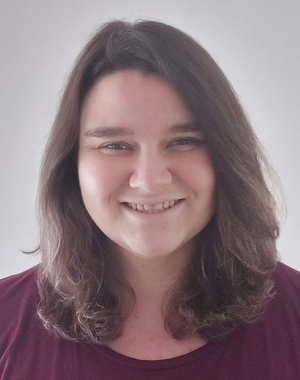
Sally MacFarlane (University of Cape Town)
For more information about this talk click here
-
Discussion Panel: Astronomy Education Around the World
Thursday Oct. 8, 2020UTC: 2:30 p.m. - 3 p.m.
Chair:
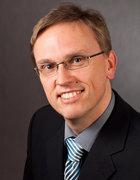
Markus Nielbock
Panel: Sally MacFarlane
(University of Cape Town), Matipon Tangmatitham
(National, Astronomical Research Institute of Thailand), Jerusalem Tamirat Teklu
(Ariel University), Aysegul Yelkenci
(Istanbul Kultur University) -
Storytelling to create a positive learning environment
Thursday Oct. 8, 2020
UTC: 8:30 p.m. - 8:40 p.m.The famous Argentine writer Jorge Luis Borges writes in The Book of Imaginary Beings. “We are as ignorant of the meaning of the dragon as we are of the meaning of the universe, but there is something in the dragon’s image that appeals to the human imagination, and so we find the dragon in quite distinct places and times. It is, so to speak, a necessary monster.” As a necessary monsters, dragons have a sibling: storytelling. Thanks to storytelling, the human being wonders about the meaning of stars and trees, nature and beauty, love and imperfection, itself and the others. Religions and myths are expressed as narratives. The art of narration allows people to make experiments, to test hypothesis (what if...), to delve into concepts, to change point of view. In short: storytelling is just like digestion. It allow us to internalize concepts and include them within our imagination. As part of the human culture, science shares the same internalisation process: storytelling can be suitable to get a sense of science and freely play with it, especially for children and kids. In the last few years, we designed an environment to foster this approach for 8-12 yrs, taking into account the gender issue too. A fictional character, Martina Tremenda, was ideated in 2014 by one of us (S. Sandrelli) to create a coherent storytelling framework to include astronomy related activities provided by the Italian National Institute for Astrophysics (INAF) under the collective name of astrokids. Martina can be considered the daughter of Pippi Longstocking, Astrid Lindgren’s character (International Andersen Prize, 1958) and Giovannino Perdigiorno (something as Little Johnnie Timewaster), a character created by Gianni Rodari (International Andersen Prize, 1970). Several tens of activities were performed using this character with very interesting results. A play was written and replied more than 20 times in one year – before covid emergency obliged us to cancel it. In my talk, I wish to share our experience and discuss with all of you how such an approach can strongly support interdisciplinary education at school level, starting from the most recent discoveries in astrophysics. And how it could be further implemented in the future.
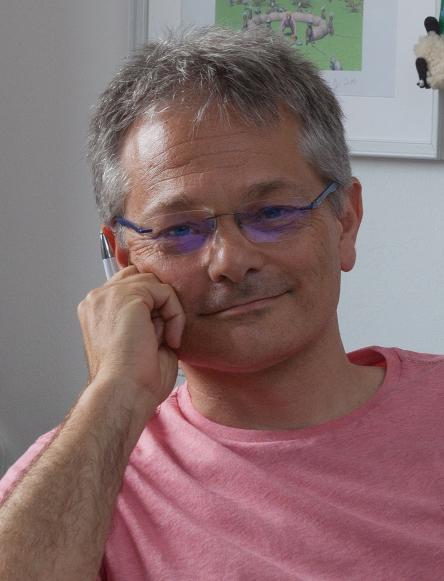
Stefano Sandrelli (INAF - National Institute for Astrophysics, Italy)
For more information about this talk click here
-
Astronomy Education as the 'Academic Ether' in Bolivia
Thursday Oct. 8, 2020
UTC: 8:40 p.m. - 8:50 p.m.Tools, opportunities and experiences. Some key features for building the future of Astronomy & Space Sciences in Bolivia. Considering an analogy in terms of 'ether' definition, it can be found that Bolivia's Astronomy present passion for science, ancestral background and big potential on students, teachers and community that is involved with educational, outreaching and future initiatives for the development with big challenges to a front.
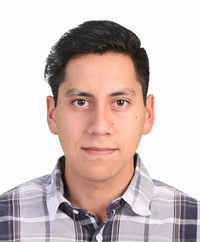
Gabriel Jaimes (Fundacion Educacional San Agustin (F.E.S.A.))
For more information about this talk click here
-
Astronomy in the land of avocados
Thursday Oct. 8, 2020
UTC: 8:50 p.m. - 9 p.m.Michoacan is a state in Mexico which faces important security problems, mostly due to narcotraffic. That implies that many towns and small cities are practically isolated and do not have easy access to the state's capital city, Morelia, where most of the educational and cultural activities take place. The Institute of Radioastronomy and Astrophysics of UNAM implemented two projects to try to bring astronomy to people who do not have easy access to it. The first project was in a neighbourhood very close to the University, but still far apart in practical terms. The second project was for communities outside the city. Astronomy workshops were put together in a kit which included audiovisual and written support materials for teachers to be able to implement them in their schools.

Anahí Caldú Primo (Institute of Astronomy - UNAM)
For more information about this talk click here
-
Astronomical education research papers in Japan: the never-changing and the ever-changing, and the challenge of returning the research results to teachers
Thursday Oct. 8, 2020
UTC: 9 p.m. - 9:10 p.m.NAEC Japan team will present some statistics on peer-reviewed astronomical papers published in academic journals in Japanese for the past decade. While the dificulty in teaching the phases of the moon is the general topic regardless of the country, a large fraction of educational research in Japan is focused on elementary school topics. Recent trends, such as citizen science-based education research, will be also presented. School teachers rarely look at these papers, and the challenge is that the research results have not reached school teachers suficiently. However, classroom research in schools relates well to the content of these papers and efforts should be made to prepare reviews that bridge between them. For the exchange of domestic and international astronomical education research, translation is also necessary.
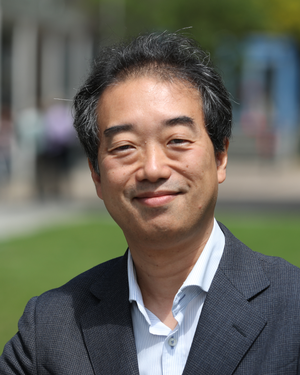
Tomita Akihiko (Wakayama University)
For more information about this talk click here
-
Discussion Panel: Astronomy Education Around the World
Thursday Oct. 8, 2020UTC: 9:10 p.m. - 9:40 p.m.
Chair:

Markus Nielbock
Panel: Anahí Caldú Primo
(Institute of Astronomy - UNAM), Gabriel Jaimes
(Fundacion Educacional San Agustin (F.E.S.A.)), Stefano Sandrelli
(INAF - National Institute for Astrophysics, Italy), Tomita Akihiko
(Wakayama University)
Posters
-
Astronomy education and teacher training: the example of CLEA in France
Frédéric Pitout (Institut de recherche en astrophysique et planétologie)
French pupils learn many astronomical concepts during their school years, from seasons and eclipses in primary and middle school to gravitation laws and stellar physics in secondary school. Yet, teachers are not well prepared to teach astronomy, especially the primary school teachers. To fill the void left by the educational authorities, the Teachers and Astronomers Liaison Committee (CLEA in French) was founded in 1977. CLEA is a non-profit association devoted to astronomy education and more specifically to teacher training. It promotes observation- and inquiry-based teaching (learning by doing). Practically, CLEA brings together professional astronomers, teachers and educators to create resources, organise training sessions and summer schools, and publish a quarterly about astronomy education. We shall share the 40-year old experience of CLEA
-
Astronomy Education in Bangladesh
Farseem Mohammedy (Bangladesh Astronomical Society)
Bangladesh lacks any infrastructure regarding Astronomy education. There is no university program on astronomy, in none of the 107 private and 46 public universities. While the school curriculum is appropriate for general science education, it lacks proper treatment on astronomy as a subject. The school science textbooks have one chapter in each grade though, from grades 4 to 12, with exceptions in grades 9 and 11. With such scanty curriculum coverage, we attempt to keep astro-lover students and laymen by introducing 10-day, 3-day workshops or even 1-day intense workshops tailoring for different needs. This talk will discuss issues, workshop coverage of topics and feedbacks from our 11 years' experience. Also the future plan of a possible open-ended Astronomy 101 course that could be attended by any interested student of science and engineering will be discussed. This proposed course could work as a guideline in the absence of a proper astronomy program with some endorsement. Furthermore, an ongoing research work will also be discussed: a seamless course-book from grade-1 to grade-12 on astronomy to fill-in the gaps of space and astronomy related learning in Bangladeshi curriculum.
-
Astronomy Education in Greece
Vasiliki Pavlidou (University of Crete)
-
Astronomy Education in Morocco
Belhaj Zakaria (HPS Foundation), Meriem Elyajouri
-
How Astronomy Olympiads and the International Olympiad on Astronomy and Astrophysics can help with Astronomy Education
Greg Stachowski (Pedagogical University of Cracow)
About my experiences with the International Olympiad on Astronomy and Astrophysics (a competition for senior high-school students) in which I have been involved since it started in 2007. We have currently about 45 countries participating with varying levels of astronomy education and preparation. I can talk about how the olympiad has motivated students and teachers in various countries, how organising the olympiad has impacted professional-amateur-teacher collaboration and what kind of support and materials the olympiad has resulted in which can be useful for teaching.
-
Perspectives in Astronomy Education of a Future School of Astronomy in the National University of San Marcos
Victor Vera (Seminario Permanente de Astronomía y Ciencias Espaciales - Universidad Nacional Mayor de San Marcos)
The first School of Astronomy creation project in Peru considers in its organization chart the Department of Astronomy Education and Cultural Astronomy. One of its main goals is to train future astronomers in seeking systematic techniques and pedagogical research in astronomy education, considering the geography and national reality of Peru. In this talk I will introduce the main ideas and perspectives of the future School and specially of the Department, which could contribute significantly to introduce astronomy into our Peruvian basic education.
-
Reframing Pedagogy: Teaching astronomy through STEAM innovation
Exodus Chun-Long Sit (Starrix Hong Kong)
This talk explores the reframing of promoting Astronomy as popular science, inspired by the COVID-19 pandemic. Through STEAM Innovation, integrating science and arts, such as Astro-Music and Space Art, would be a case in point of forced association. It redefines our methodology of Astronomy education and encourages the engagement of teachers from other disciplines. Supporting with user-centered design thinking, this pedagogy contributes effectively to the interactive teaching for solving real-life problems related to Astronomy.




